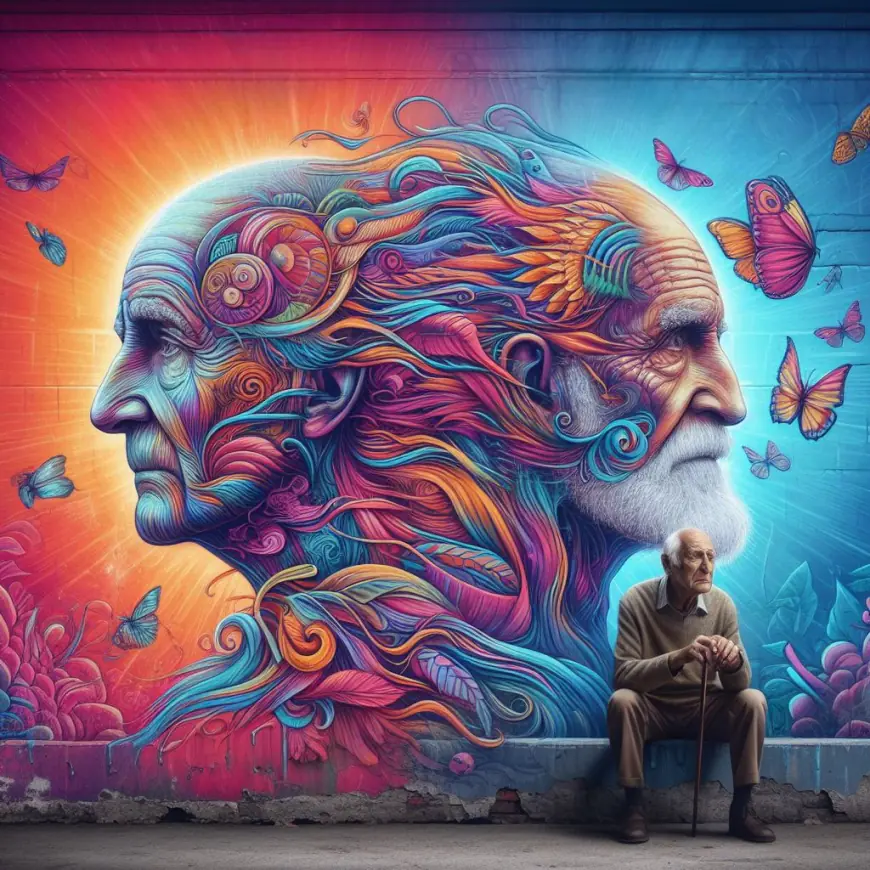Why Do Seniors Forget Today but Recall Past?
“Old Memories vs. New: The Aging Brain’s Quirks Revealed”

Why Do Older People Forget New Events While Remembering Old Memories in Detail?
Introduction
As we age, our minds become repositories of countless memories—some vivid and others faded. It’s a fascinating journey through time, where the past intertwines with the present. But why is it that older individuals often struggle to recall recent events while retaining crystal-clear memories from their youth? In this article, we delve into the intricate workings of memory, exploring the reasons behind this phenomenon.
The Aging Brain: A Complex Landscape
The human brain is a remarkable organ, constantly adapting and evolving. As we grow older, changes occur in all parts of our bodies, including the brain. These changes impact memory and cognitive functions. Let’s explore some key factors:
1. Neuronal Connections
Neurons—the building blocks of our brain—form intricate networks. These connections allow us to process information, store memories, and retrieve them when needed. However, as we age, some of these connections weaken or break down. Consequently, our ability to encode and retrieve new information becomes less efficient.
2. Blood Flow and Oxygen Supply
Blood flow to the brain plays a crucial role in maintaining cognitive health. Unfortunately, older adults often experience decreased blood flow to this vital organ. Reduced blood flow impairs memory function, making it harder to learn new things. Imagine a bustling highway with occasional traffic jams—information struggles to reach its destination promptly.
3. Hormones and Proteins
Hormones and proteins protect and repair brain cells. As we age, their levels decline. These diminutions affect neural growth and synaptic plasticity—the brain’s ability to adapt. Consequently, memory formation and retention suffer.
The Curious Case of Old Memories
Now, let’s address the intriguing aspect: why do older individuals remember old memories in vivid detail? Here’s the best explanation:
1. Alzheimer’s and Memory
Alzheimer’s disease, a form of dementia, affects recent memories first. New information slips through the cracks, leaving gaps in the mental timeline. However, memories from childhood or long ago remain well encoded. Why? Because these memories have had more time to settle and embed themselves in the neural fabric. Imagine a well-worn path in a forest—the footsteps of countless travelers have etched it deeply into the earth.
2. Misattribution
Old memories are especially prone to misattribution. Picture a dusty attic filled with forgotten treasures. When we retrieve an old memory, it feels vivid and real. However, our brains might mistakenly attribute it to a more recent event. It’s like mistaking a vintage photograph for a snapshot taken yesterday.
Coping Strategies for Age-Related Forgetfulness
While memory changes are a natural part of aging, there are ways to mitigate their impact:
1. Learn New Skills
Challenge your brain by acquiring new skills. Whether it’s playing an instrument, learning a language, or mastering a hobby, novelty stimulates neural connections.
2. Follow a Routine
A structured daily routine helps anchor memories. Use calendars, notes, and reminders to stay organized.
3. Stay Socially Engaged
Interacting with friends and family keeps your mind active. Volunteer, join clubs, or participate in community events.
4. Prioritize Sleep and Nutrition
A well-rested brain functions optimally. Aim for seven to eight hours of sleep each night. Additionally, nourish your body with a balanced diet.
5. Seek Professional Help
If memory problems significantly impact your daily life, consult a doctor. They can assess your condition and recommend appropriate interventions.
Conclusion
As the sands of time shift, our memories dance between the ephemeral and the enduring. Cherish the old recollections—they are the threads that weave the rich tapestry of your life. And when forgetfulness knocks, embrace it as a gentle reminder of your unique journey through the corridors of memory.
Remember, the mind is both a historian and a poet, preserving fragments of the past while composing verses for the future.
What's Your Reaction?








































